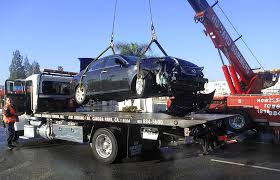What is TO IMPOUND in Spanish?

Truck Driver: "And yes, you will have to pay for this as well!" When something is impounded it means that it is under legal custody because of a law infringement of sorts. Waht is impounded should be something really valuable such as a car, a computer or even documents. That is the most usual use of the word IMPOUND as a verb, but it could also mean Lock Up or even Hold Back. For purposes of this entry we will use only the most well-known meaning. In this case the translation is CONFISCAR. vehicles parked where they cause an obstruction will be impounded





